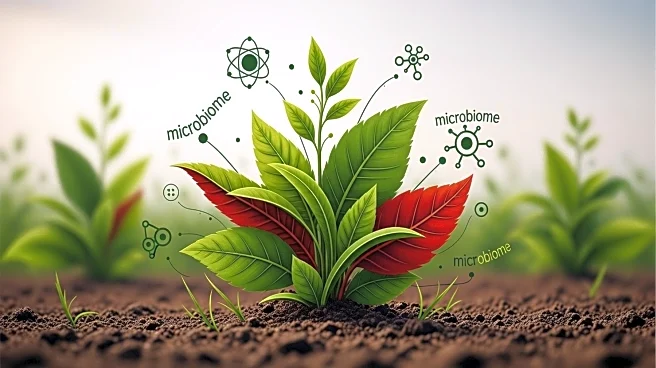What's Happening?
Researchers at the University of Southampton have developed a method to enhance crop protection through microbiome engineering. By modifying lignin biosynthesis genes in rice plants, they have successfully altered the plant's metabolic output to favor beneficial bacterial populations, creating a natural defense system against bacterial blight. This breakthrough offers an alternative to chemical pesticides, which have detrimental effects on ecosystems and human health. The study, published in Nature Communications, highlights the potential of microbiome engineering to improve disease resistance and nutrient absorption in crops.
Why It's Important?
This advancement in microbiome engineering could revolutionize agriculture by reducing the need for chemical pesticides and fertilizers, thus promoting environmental sustainability. With rice being a staple food for nearly half the world's population, enhancing its resistance to bacterial blight could significantly improve food security. The approach also opens possibilities for broader agricultural improvements, potentially increasing crop yields and reducing environmental impact.
What's Next?
As the technology progresses from laboratory research to field applications, it could reshape sustainable agriculture practices. Future developments may focus on engineering microbiomes to enhance nutrient uptake, further reducing reliance on synthetic fertilizers. The successful implementation of this technology could lead to widespread adoption in various crops, promoting a more sustainable and resilient agricultural system.









